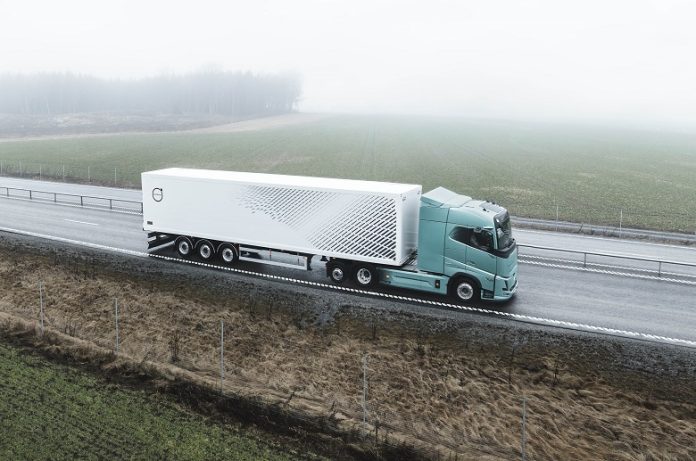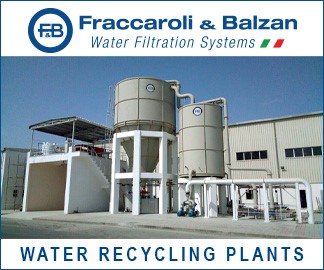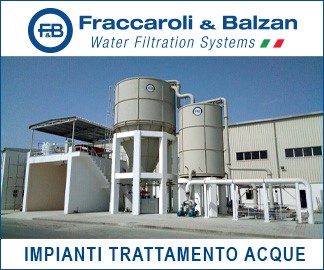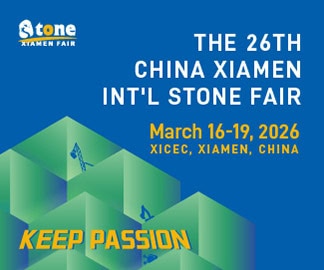Volvo’s new long-haul electric truck offers a range of up to 600 kilometers, with batteries that can be charged in just 40 minutes. For the first time, Volvo introduces its new heavy-duty electric truck – the company’s new flagship – with the aim of revolutionizing long-distance transportation.
Volvo Trucks will officially present and open orders for its new long-haul electric truck, the Volvo FH Aero Electric with an electric axle (e-axle), in the second quarter of 2026. However, images and further details about the new electric model have already been released, and customers can now sign a letter of intent to purchase.
The new FH Aero Electric is specifically designed for long-distance transport — a sector responsible for a significant percentage of CO₂ emissions in road freight, and which has posed unique challenges to electrification until now. The truck enables fast charging and offers a range of up to 600 kilometers on electric power alone.
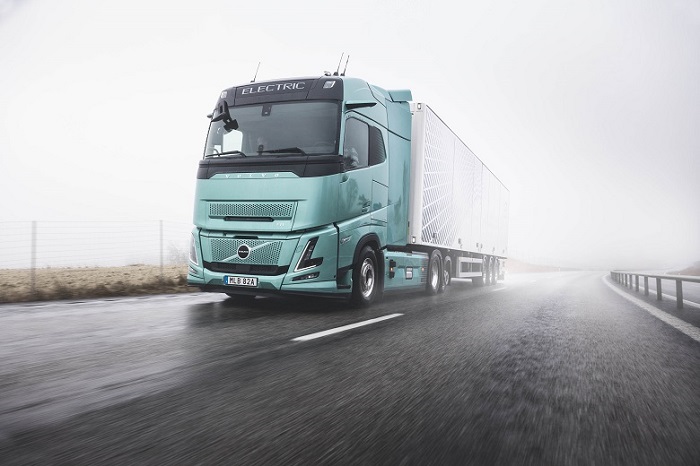 “This is a major breakthrough in zero-emission transport. Haulage companies can now operate long-distance routes with electric trucks without compromising productivity. Ultra-fast charging and the ability to carry heavy loads make this a highly competitive solution,” said Roger Alm, President of Volvo Trucks.
“This is a major breakthrough in zero-emission transport. Haulage companies can now operate long-distance routes with electric trucks without compromising productivity. Ultra-fast charging and the ability to carry heavy loads make this a highly competitive solution,” said Roger Alm, President of Volvo Trucks.
“Electric trucks for long-haul applications will significantly contribute to reducing CO₂ emissions in our industry, as this is where the greatest savings per vehicle can be achieved. It’s a positive step forward — both for transport companies and for society as a whole.”
Ultra-Fast Charging in 40 Minutes
The Volvo FH Aero Electric’s batteries are designed for quicker charging, as the new truck is compatible with the Megawatt Charging System (MCS) standard. Charging the truck’s battery from 20% to 80% will take about 40 minutes, meaning it can be completed during the legally mandated rest time for truck drivers in the EU, thereby supporting high productivity. Thanks to ultra-fast charging, long-distance electric transport becomes feasible within a single day.
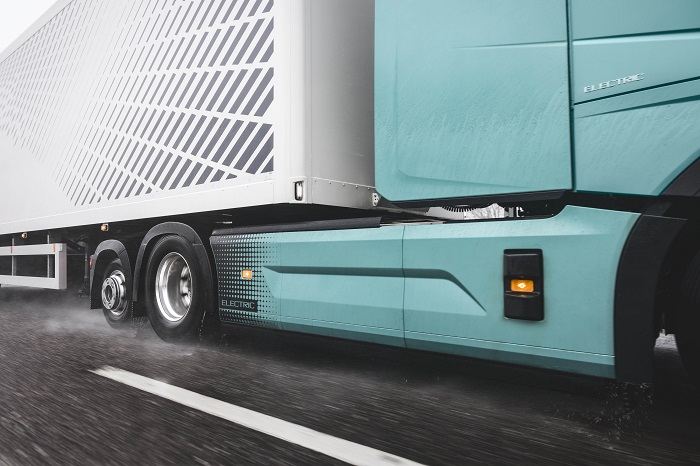 High Payload Capacity
High Payload Capacity
The new electric truck can have a gross vehicle weight of 48 tons, with a payload capacity close to that of a diesel-powered truck. This high payload is enabled by an additional support axle (6×2 axle configuration), allowing for more batteries and offering benefits in weight distribution, accounting for the battery weight alongside heavy trailers.
The truck’s extended range is made possible by its innovative e-axle drive technology, which frees up space for a significantly larger battery capacity. The new FH Aero Electric can accommodate up to 8 batteries with a total capacity of 780 kWh.
Extensive Range and Years of Experience
Available also with a standard cab, the new truck is a key addition to Volvo Trucks’ extensive range of electric trucks and related services. These services cover everything from route assessment for electrification, efficient on-the-go and depot charging, to detailed fleet performance monitoring.
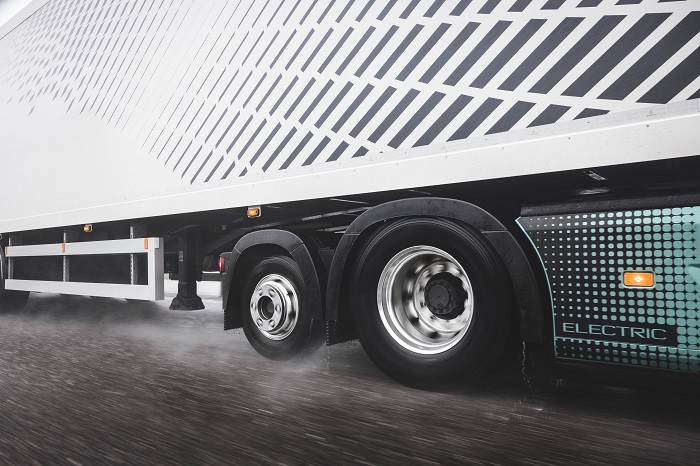 “We offer the most complete range of electric truck solutions in the transport sector and have over five years of experience supporting thousands of customers, large and small, in their transition to electric transport. Volvo Trucks is the go-to partner for transport companies looking to begin their decarbonization journey,” said Roger Alm.
“We offer the most complete range of electric truck solutions in the transport sector and have over five years of experience supporting thousands of customers, large and small, in their transition to electric transport. Volvo Trucks is the go-to partner for transport companies looking to begin their decarbonization journey,” said Roger Alm.
A Global Leader in Electrification
Volvo Trucks is a global leader in medium- and heavy-duty electric trucks, offering eight fully electric models in its portfolio. Its wide range of products enables electrification across various sectors, including urban and regional distribution, construction operations, waste management, and now long-haul transport. Volvo began serial production of electric trucks in 2019 and has since delivered over 5,000 electric trucks to customers in 50 countries worldwide.
Volvo’s Triple Strategy for Zero Emissions
Volvo Trucks is leading the shift towards fossil-free transport, targeting net-zero emissions by 2040 through a triple-technology strategy. This strategy is based on:
-
Battery electric vehicles
-
Fuel cell electric vehicles (hydrogen-powered)
-
Internal combustion engines running on renewable fuels, such as green hydrogen (produced via electrolysis using renewable energy), biogas, biodiesel, or HVO (Hydrotreated Vegetable Oil).


